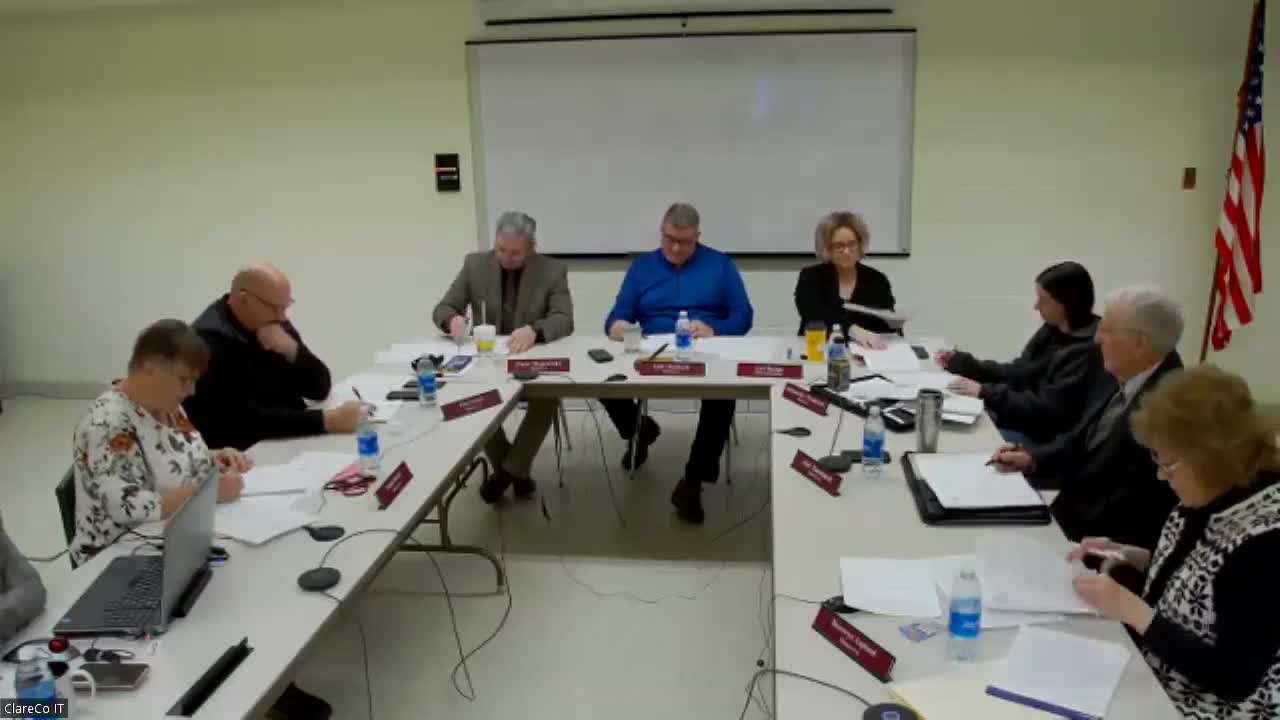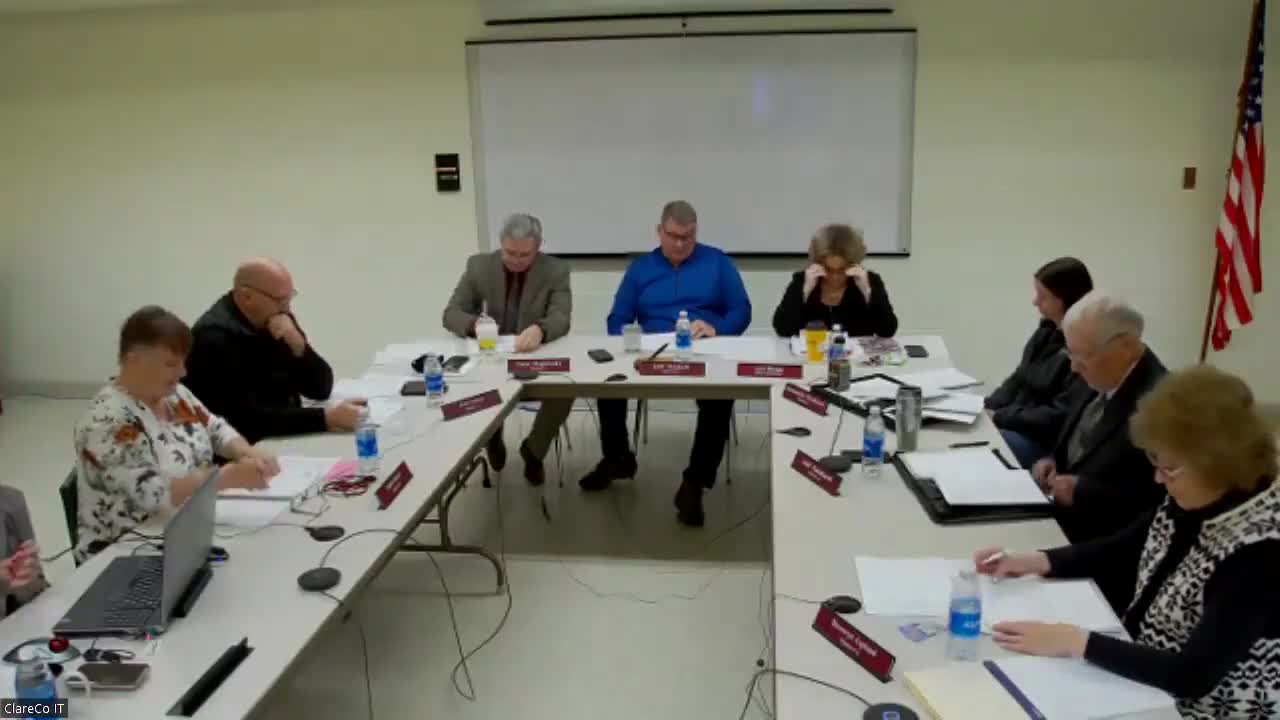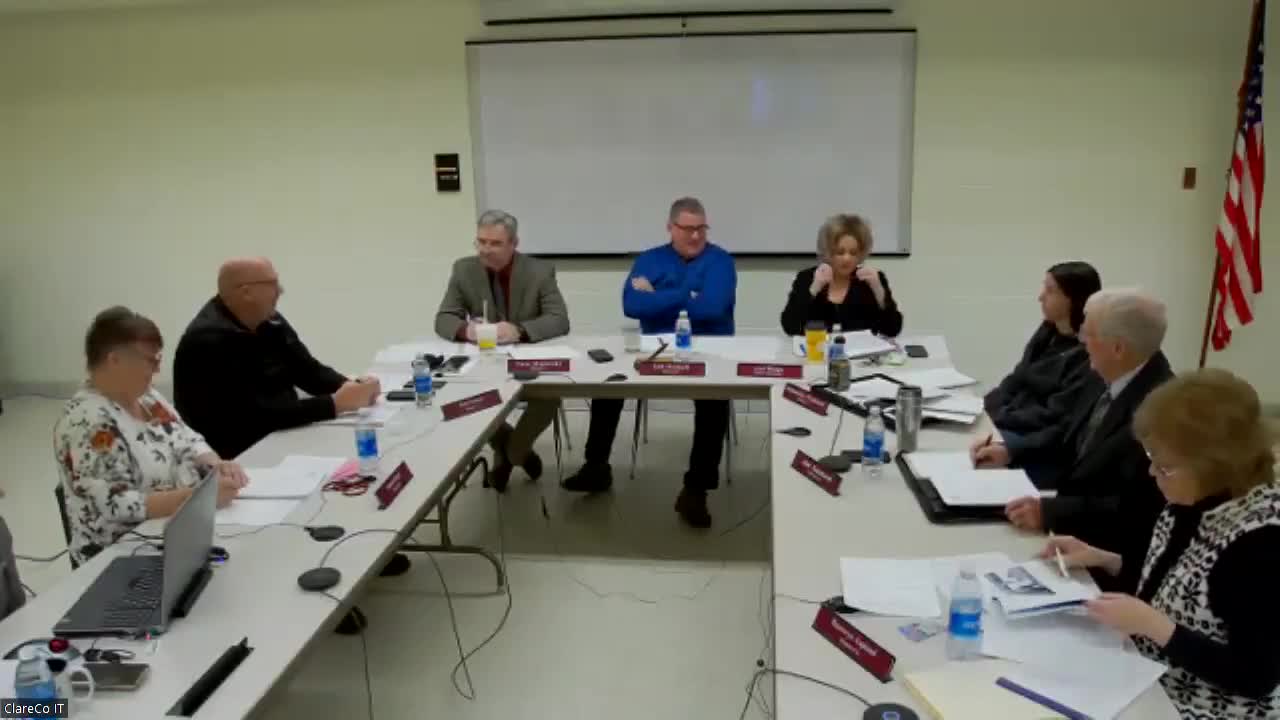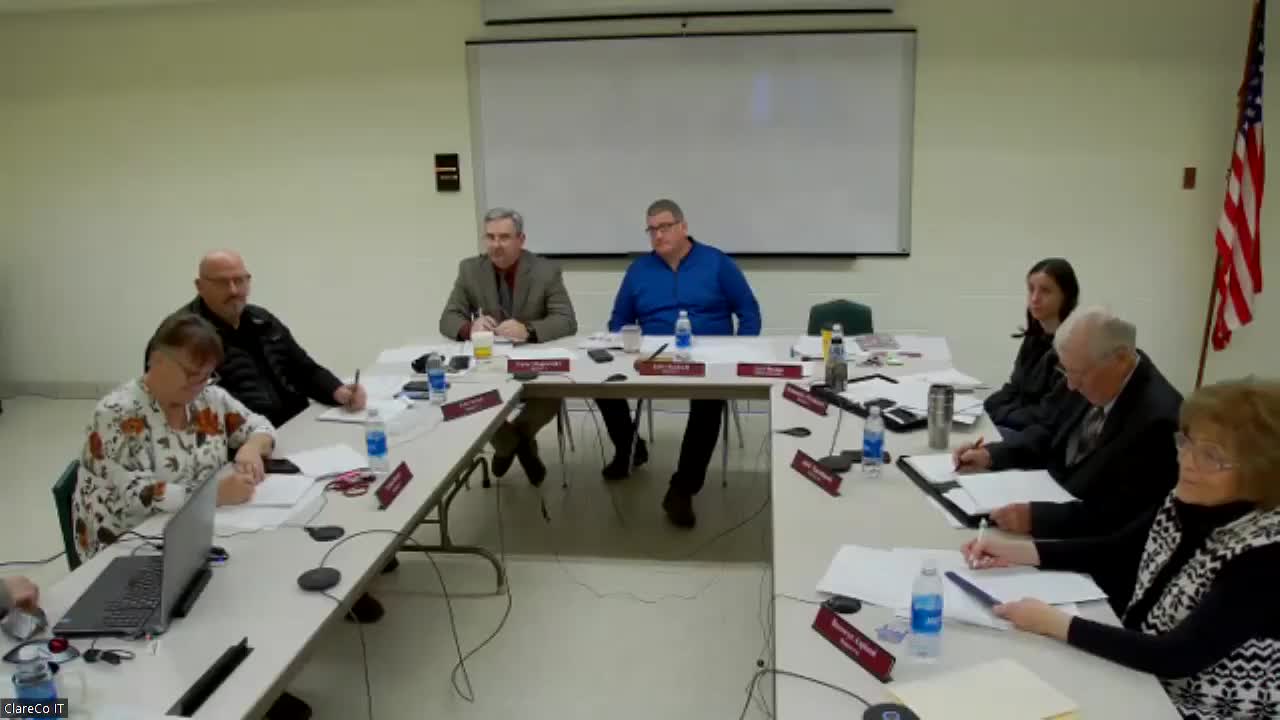Article not found
This article is no longer available. But don't worry—we've gathered other articles that discuss the same topic.

Board approves vehicle for veterans, multiple contracts and budget adjustments

County staff: recent state bills boost liquor and veterans funding, add solid-waste planning duties

Clare County approves SmithRx as prescription vendor, promises employee outreach and lower drug costs

